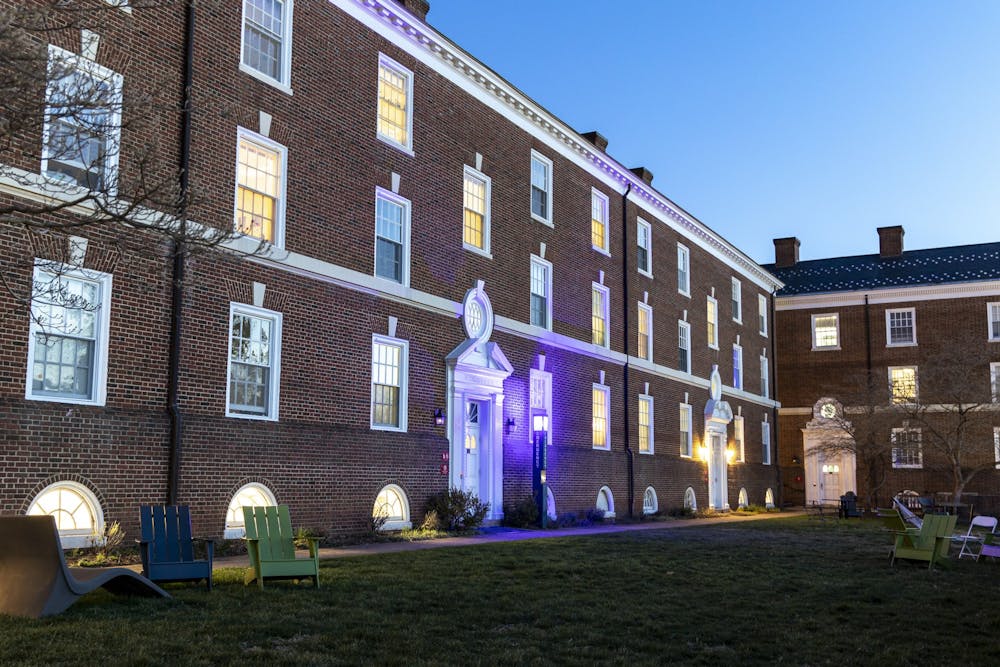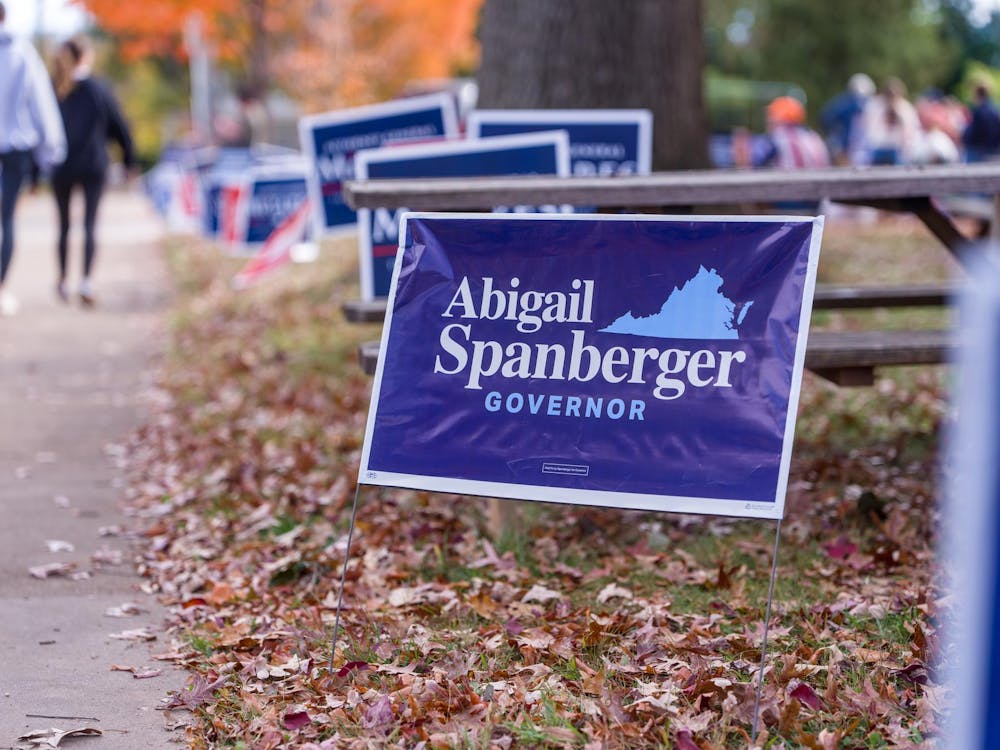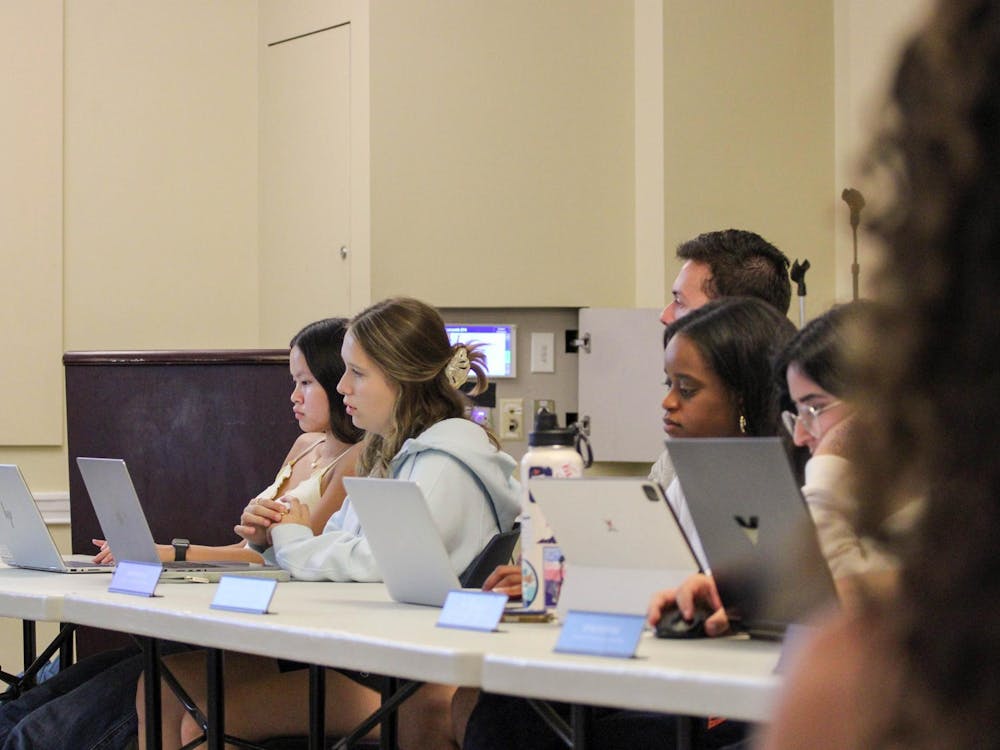A series of pipes clogged with e-cigarettes left pools of standing sewage in Brown Residential College ground floor halls and bathrooms. Although all related clogs and sanitation hazards have reportedly been resolved as of Monday night, many Brown residents have said that Housing and Residence Life failed to provide adequate resources or properly communicate their progress on the fix.
Multiple Brown students reported that they had not received the first of four HRL notifications Sunday night notifying Brown residents of the issue and their subsequent response. According to second-year College student Jason Almas, some of the people who did not receive the initial emails had been living in Brown for multiple semesters.
“Most of the people who didn't get the email had lived in brown for like three, four years at that point,” Almas said. “The later emails came to more people but the original ones only came to like a select number, so we had to supplement that with our own email system.”
The sewage backup was initially reported to Facilities Management at around 9:00 p.m. Sunday and resolved by 11:30 p.m., with two subsequent incidents occurring at 4:00 a.m. and 7:00 a.m., respectively. According to University spokesperson Bethanie Glover, the three clogged pipes were caused by electronic cigarettes that had been flushed into the main sewer line.
In order to prevent further backwash, facilities turned Brown’s water off multiple times throughout the night and following morning. After receiving calls from residents, the Dean of Students was able to arrange for student access to Newcomb Hall and Memorial Gym until 3:00 a.m. to use their facilities.
However, according to first-year College student Jeffrey Wooters, HRL did not provide contact information or any information concerning water access and did not relocate students in dorms contaminated with sewage from connected bathrooms.
“HRL’s response basically boiled down to ‘ask your friends in the building if you can crash on their floor or if you can take a shower in their shower,’” Wooters said. “There weren't any resources telling us where to go if your room is uninhabitable.”
Fourth-year Engineering student Neil Dolan lives in one of the dorms on the ground floor, and reported about a half centimeter of standing sewage in his bathroom drain and one to two centimeters in the hall outside his dorm. When he reached out to HRL for possible compensation for damages, Dolan was informed that the University is not responsible for any damaged property and that he would have to file a complaint through a renter’s insurance plan.
“While temporary housing was not provided in this case, anyone with lost or damaged personal property due to a facility related issue should report it under their individual renter’s insurance policy in order to be reimbursed,” Glover said.
Per clause 25 of Housing and Resident Life’s terms and conditions, the University is not responsible for damaged property on-Grounds or in University housing and students are “urged to purchase renter's insurance for protection against loss or property damage.” Renter’s insurance is not mentioned on the HRL website outside of listed terms and conditions.
“I will say, as a fourth-year student who lived on-Grounds for years through COVID-19, at no point have I ever been informed that I should have renter's insurance,” Dolan said.
Although many residents have expressed frustration with HRL’s response to the incident, most were satisfied with the assistance from Facilities Management and the Dean of Students.
“The general consensus is that maintenance and the office of Dean of Students were amazing, that cannot be understated,” Almas said. “Maintenance had this issue dealt with like less than 15 hours which, for a building that was built in the 1930s, is not an easy task, and the Office of the Dean of Students was helpful and gave us updates where they could.”
For many Brown residents, the issue was less about the response itself and more about HRL’s alleged lack of transparency and resources for residents, especially when compared to Facilities Management and the Office of the Dean of Students. Residents have called on HRL to provide more direct means of communication and organized resources should another incident occur.
HRL also faced criticism for their response to mold in first-year dorms this past fall, with organizations like the University chapter of the Young Democratic Socialists of America calling for greater accountability and renovations.
“It's really an issue of respect,” Dolan said. “I'm not asking necessarily for money. I'm not asking for a ton. I'm just asking to be treated as an equal stakeholder and not an afterthought.”







